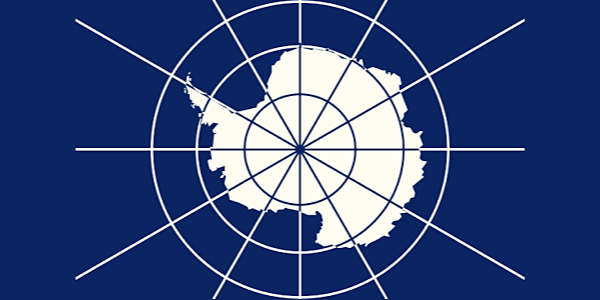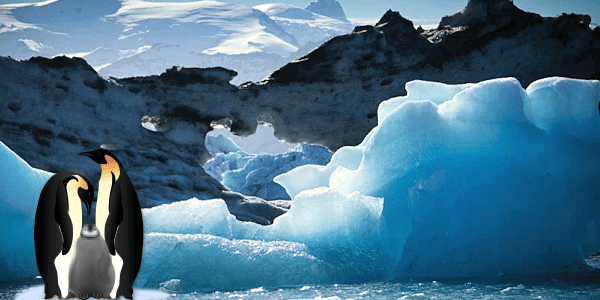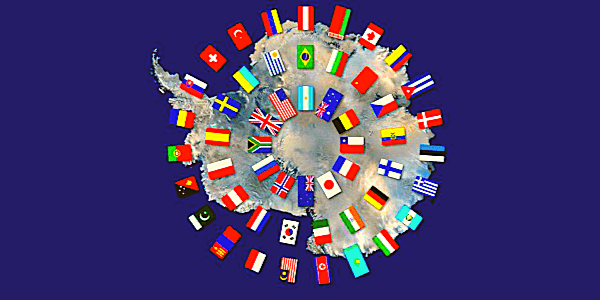This article aims to define the Antarctic Treaty and give other relevant information. We’ll also talk about when India got involved and the Antarctic Treaty System Agreement (ATS). Finally, it discusses the importance of this issue in both the UPSC Prelims and Mains exams. So let us get started.
- Antarctic Treaty: About
- Antarctic Treaty System (ATS): Why in the news?
- The Antarctic Treaty System (ATS)
- India and Antarctic Bill Provision
- Major International Antarctic Agreement of the Treaty System
- India Antarctic Program
- The way forward: Antarctic Treaty
- Important for UPSC
- Conclusion- Antarctic Treaty
- FAQ- Antarctic Treaty
- Editor's Note | Antarctic Treaty
Antarctic Treaty: About
- The Antarctic Treaty System (ATS) governs international relations with regard to Antarctica and includes the Antarctic Treaty and related agreements.
- This is the only continent on earth without any indigenous people.
- The Antarctic Treaty was signed in Washington on December 1, 1959, by 12 countries to make the Antarctic Continent a militarized zone to be used primarily for scientific study.
- Argentina, Australia, Belgium, France, Chile, Japan, New Zealand, South Africa, Norway, the Union of Soviet Socialist Republics, the United Kingdom, & the United States are among the initial signatories.
- They are supporting scientific research freedom.
- Countries can only use the continent for peaceful purposes.
- Military activities, nuclear tests, & the disposal of radioactive waste are all prohibited.
- The term “neutralizing territorial sovereignty” refers to a restriction on filing new claims or the expansion of existing ones.
- Any claims to land on the continent were put on hold.
- The Treaty covers the region south of 60 degrees south latitude.
- 54 countries have now signed the Antarctic Treaty. India signed the Treaty in 1983.
- Every year, the Antarctic Treaty Consultative Meeting (ATCM) is held.
- Buenos Aires, Argentina, is the headquarters.

Antarctic Treaty System (ATS): Why in the news?
The Antarctic Treaty’s 60th anniversary was recently commemorated. The Antarctic Treaty is still the only instance of a single system governing an entire continent. It also serves as the cornerstone of a rules-based international order for a continent with no permanent population.
The Indian govt has introduced ‘The Indian Antarctic Bill, 2022’ to provide for national measures to conserve the Antarctic environment and give effect to components of the Antarctic Treaty System that it has signed or ratified.
The Bill also proposes to create a framework to govern and monitor activities at India’s Antarctic research sites.
To learn more about other important UPSC topics, click UPSC Study Materials. IAS aspirants can visit the linked article. For more information, go to the UPSC’s official website.
The Antarctic Treaty System (ATS)
- The Antarctic Treaty System (ATS) governs international interactions with Antarctica, the world’s only continent without a native human population.
- For the specific purpose of the agreement system, Antarctica is defined as all land and ice shelves south of 60° South latitude. The Treaty was signed in 1961 and now has 54 signatories.
- The Treaty designates Antarctica as a scientific preserve, guarantees scientific freedom, and prohibits military activities on the continent.
- It was the first arms control accord signed during the Cold War.
- The annual Antarctic Treaty Consultative Meetings (ATCM) of the Antarctic Treaty System(ATS) serve as an international platform for the region’s administration and management.
- Only 29 of the 54 parties to the agreements have the opportunity to vote at these sessions, although the remaining 25 are welcome to attend.

India and Antarctic Bill Provision
- The most essential feature of the Bill is that it broadens the jurisdiction of Indian courts to include crimes perpetrated on the island by Indian residents or foreigners who are part of Indian expeditions.
- Allow fishing: Despite the fact that India does not engage in the commercial fishery in the region, the Bill currently permits it. However, strict guidelines have been established in accordance with international law.
- The Bill contains tight standards and a permit system that will be given by a government-appointed committee, without which no expedition or individual will be permitted to reach Antarctica.
- Drilling, dredging, excavation, or collecting of mineral resources and doing anything to identify where such mineral deposits occur are all prohibited under the Bill, except scientific research conducted with a permit.
- According to the Bill, no new animals, birds, plants, or microscopic organisms that are not native to Antarctica will be introduced into the frozen continent. Violators may be sentenced to prison as well as face other penalties.
- For example, dumping nuclear waste or causing a nuclear explosion might result in a sentence of 20 years to life in jail and a fine of Rs 50 crore. After obtaining a permit, the Bill also authorizes Indian tour operators to operate in Antarctica.
- Damage to native plants is also prohibited, as is flying or landing helicopters or operating vessels that may disturb birds and seals; using firearms that may disturb birds and animals; removing soil or biological material native to Antarctica, and engaging in any activity that may harm birds and animals.
Major International Antarctic Agreement of the Treaty System
- The Antarctic Treaty of 1959.
- The Antarctic Seal Conservation Convention was established in 1972.
- The Marine Antarctic Living Resources Conservation Convention of 1980.
- The Antarctic Treaty Protocol on Environmental Protection was signed in 1991.
- The formulation of these agreements has enabled the execution of legally enforceable measures for the regulation of operations in Antarctica with greater accuracy.

India Antarctic Program
It is part of the National Centre for Antarctic and Ocean Study’s scientific research and exploration program (NCPOR). It all began in 1981 when India sent its maiden expedition to Antarctica. NCPOR is the country’s nodal agency for the planning, promotion, coordination, and execution of all polar and southern ocean scientific research and the accompanying logistics activities. It was founded in 1998.
Dakshin Gangotri, Maitri, and Bharati are the names of three permanent research base stations created by the Indian Antarctic program in Antarctica. India has two research outposts in Antarctica, Maitri, and Bharati.
- Dakshin Gangotri: As part of the Indian Antarctic Program, Dakshin Gangotri was the first Indian scientific research base station created in Antarctica. The Dakshin Gangotri temple is now closed.
- Maitri: it is India’s second permanent Antarctic research outpost. It was completed in 1989 on the Schirmacher Oasis. India built Lake Priyadarshini, a freshwater lake near Maitri. Through Bharati, India rehabilitates Maitri and increases its infrastructure development in Antarctica.
- Bharati: Since 2012, India’s newest research station, Bharti, has been operational. This is designed to keep researchers safe while working outside in bad weather. In 2008, India commissioned the Sagar Nidhi to study. It is an ice-class vessel capable of cutting through thin ice up to 40 cm thick and is the first Indian vessel to explore the Antarctic seas.
The way forward: Antarctic Treaty
Whereas the Antarctic Treaty has proven to be adaptable to a range of issues. The scenario in the 2020s is significantly different from that of the 1950s. Antarctica is now much more accessible, thanks to technical improvements as well as climate change. Currently, more than the original 12 countries have a considerable stake in the continent. Some global resources are getting scarce, particularly oil.
There is a lot of speculation about China’s interests in Antarctic resources, particularly minerals and fisheries, and whether it will try to obtain access to them by exploiting system faults. As a result, all signatories, especially those with significant stakes in the continent, must pay closer attention to the pact’s survival.

Important for UPSC
Antarctic Treaty (Antarctica Treaty) is a topic that UPSC candidates would need to know in order to answer questions from the Foreign Relations and International Affairs part of GS Paper 2. The UPSC Prelims stage consists of two papers. Both studies are unbiased.
There is a total of 9 papers in the UPSC Mains exam, seven of which are used to determine the final ranking. Aspirants will be asked questions about the Antarctic Treaty in Paper 3: General Studies 2 (GS-2): International Relations. The IAS Mains, which are given by students who passed the Prelims, include subjective-type questions.
Climate change’s effects on Antarctica are among the most often asked questions. However, when it comes to the Antarctic Treaty, international relation is a crucial topic for students to learn about.
Conclusion- Antarctic Treaty
This study will provide you with a thorough understanding of the Antarctic Treaty System (ATS) and Agreements. We’ve also included provisions for India and Antarctica in the Bill and other important details. The Treaty maintains that Antarctica is devoid of territorial claims or sovereignty to prevent conflicts or disagreements between nations. This is a vital topic for your exam, so don’t forget to write down key elements for later review. The most important step in your UPSC preparation is revision.
FAQ- Antarctic Treaty
The Antarctic Treaty now has 54 members, although only 29 countries have voting rights at the Antarctic Treaty Consultative Meetings, including India. In 1983, India signed the Antarctic Treaty (agreements) and was granted consultative status
37 expeditions to Antarctica have been organized by India. Climate processes and linkages to climate change, environmental processes and conservation, and polar technologies are among the key emphasis areas of the Indian Antarctic Programme. The Antarctic expedition spends between 90 and 110 crores each year on operations, depending on the programs and services it provides.
Argentina, Australia, Chile, France, New Zealand, Norway, and the United Kingdom all have territorial claims in Antarctica, but the United States and the majority of other countries do not recognize them. The United States has not made a claim to Antarctica.
Editor’s Note | Antarctic Treaty
In conclusion, we have included all relevant information on Antarctic Treaty System (ATS) & Agreements, and so on in this post. One of the most important aspects of civil service test preparation is practicing the previous year’s question papers. Aspirants preparing for the UPSC exam should review the previous year’s UPSC prelims and mains question papers. A candidate’s confidence will be boosted by attempting and scoring well on these papers. Finally, for your preparation, read this article thoroughly. Best wishes







